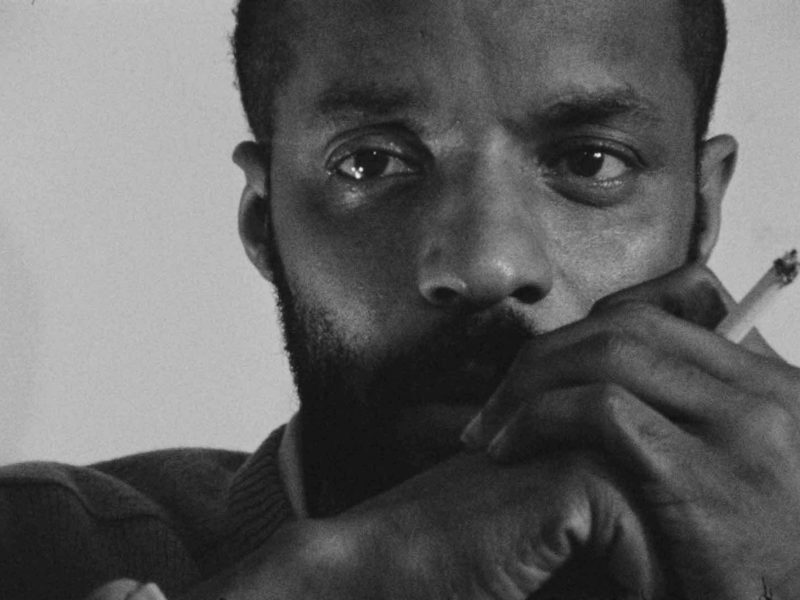Tidløs reise
How can film help to identify the distribution of power over time and contribute to new ideas about our own times? That is the starting point for this series, which consists of four African-rooted films made over a span of fifty years.
21.08.2023
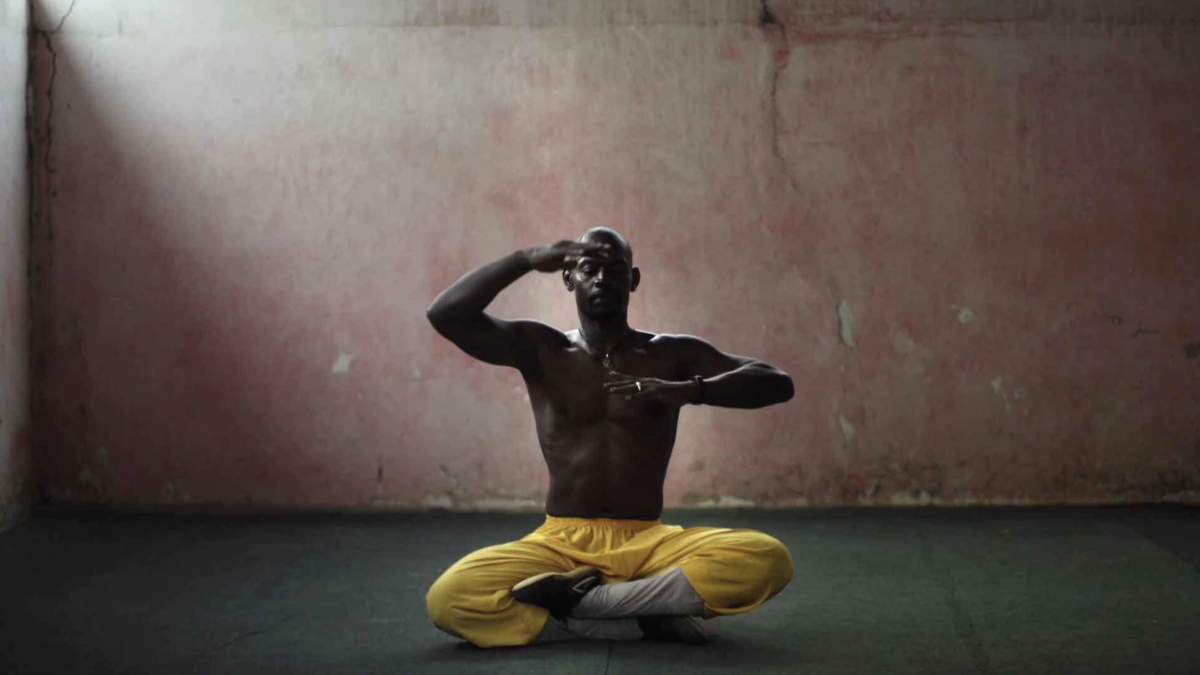
In 1965, the Mauritanian filmmaker Med Hondo with private means begins on Soleil ô, the film that four years later will be his feature film debut. The film is today considered one of the most important and at the same time the earliest African films. The film is a strong political illustration of the difficult existence for African low-wage workers in 1960s Paris.
The activist Omar Blondin Diop
During the same period, left-wing political protests begin at French universities. Jean-Luc Godard goes in 1967 to the University of Nanterre to observe the actions, led by the legend Daniel Cohn-Bendit. In Nanterre, Godard meets the Senegalese activist Omar Blondin Diop. Godard's experiences become the feature film La chinoise, in which Diop is invited to take part. As the only character in the film, he plays himself: as a leader in the student movement.
Diop is later expelled from the university, but continues his political involvement, not the least in his native Senegal. In 1973, he is arrested for planning the kidnapping of a French ambassador and imprisoned on the prison island of Gorée, and then killed. We are showing Vincent Meessen's film Just a Movement (2021) about Omar Blondin Diop. The film is a free recreation of La chinoise, here with Dakar as the backdrop.
Chinese voices
With Godard and in Just a Movement, the Chinese voice (la Chinoise) is the red message, in the form of Mao's Little Red Book. In Angolan Ery Claver's feature film Our Lady of the Chinese Shop (2022), the Chinese poetic narrator is an observer, who sees a society in turmoil and how a new great power, China, is constantly present. The film's characters carry unrest within them, but are unsure if they want to and how they can take up the fight. What the whole neighborhood has in common is that they own a copy of the same religious fetish; The Virgin Mary Our Lady of the Cross statue (not Mao's little red one, that is), sold in large quantities by the owner of the local Chinese supermarket down the street.
The legacy of colonialism
The series is completed by Alice Diop's documentary film On Call (2016), which is a testimony to the situation of many refugees and migrant workers in today's France, fifty years after Med Hondos Soleil ô. The film was shot over six months at a doctor's office in one of the suburbs of Paris, where newly arrived migrants are offered free healthcare. In advance, Diop had been on site for a year as an observer. The film gives a clear picture of our times' increasingly inhumane treatment of migrants, and the trauma they suffer from.
The legacy of colonialism is one of the series' two "red threads". The second is the question to what film is, in this context? The films in the series problematize their own contemporaries, while at the same time experimenting with the medium through awareness of form in order to explore contemporary and hegemonic power relations in the best possible way.
The series is curated by Hanan Benammar and Brynjar Bjerkem for the art producer Transcultural Arts Production (TrAP) and is shown at the cinematheques in Oslo, Trondheim, Bergen and Tromsø, - as well as for Just a movement, at the Arctic Moving Images & Film Festival (AMIFF) in Harstad.
More information about the films, tickets and other relevant information can be found at the Oslo Cinematheque's pages!
2023
Film
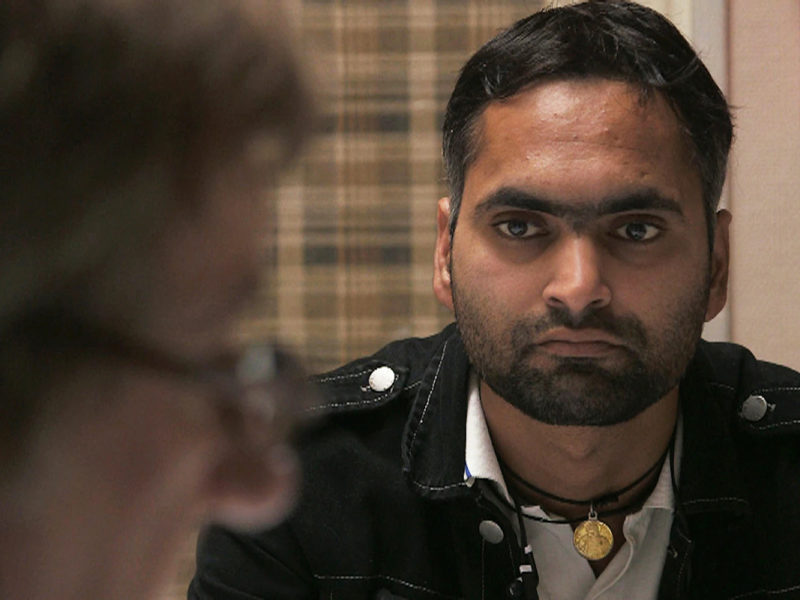
Alice Diop: «On Call»
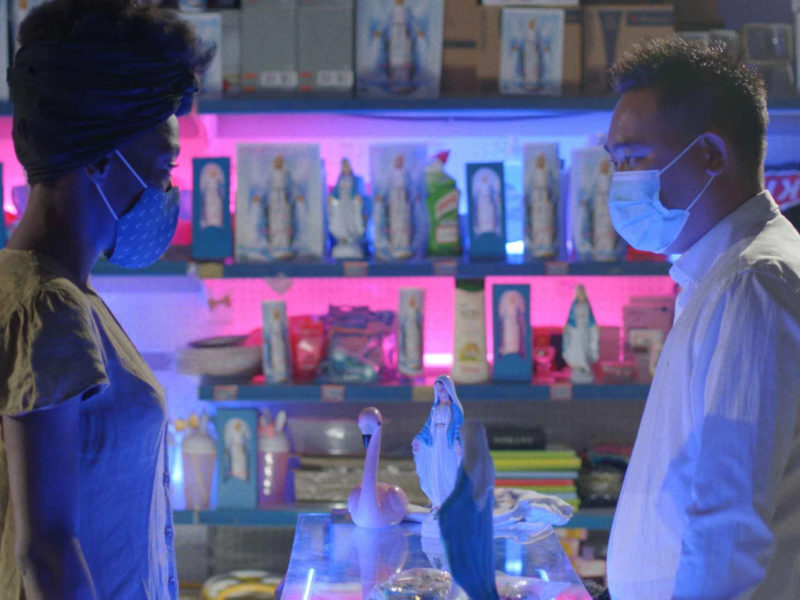
Ery Claver: «Our Lady of the Chinese Shop»
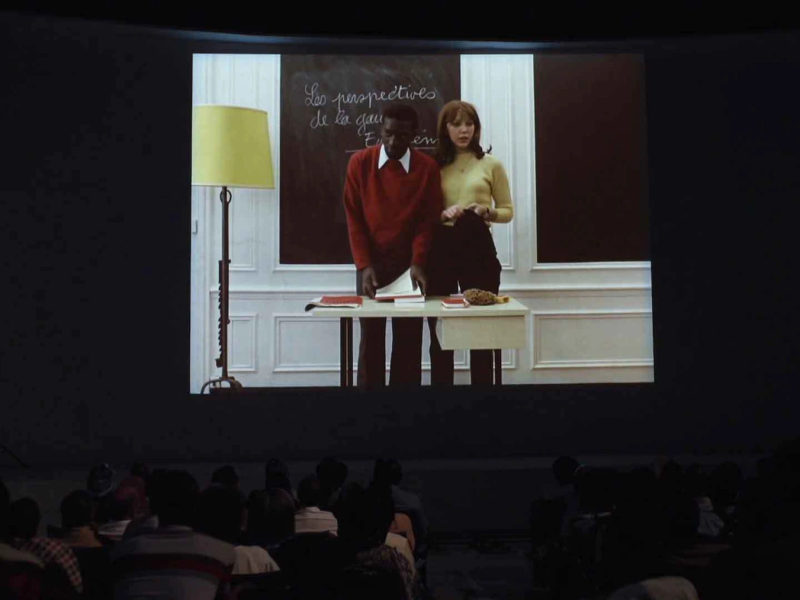
Vincent Meessen: «Just a Movement»
